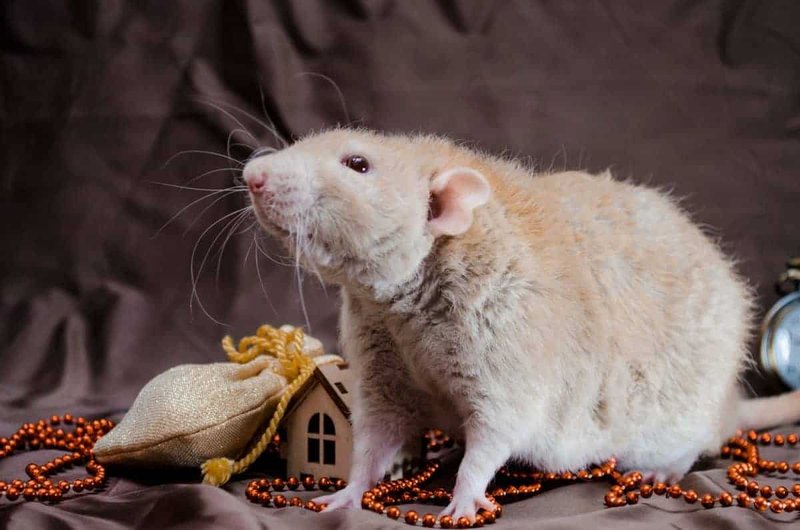
Imagine you’re throwing a party for your new furry friend. The most important guests? Their diet, habitat, and how to handle them. Just like any good gathering, you want everything set up just right—from the food to the atmosphere and, of course, the interactions. Let’s dive deeper into what it takes to create the perfect environment for your rex rat.
Understanding Rex Rats: A Quick Overview
Rex rats are a special breed known for their unique curly fur, which feels a bit like velvet. This mutation gives them a soft, distinct appearance that many find irresistible. They are social animals and thrive on interaction—both with humans and other rats. Keeping a rex rat means understanding their needs and quirks, including how they behave in different situations. You might be wondering why these little critters even matter. Well, their friendly nature makes them great pets for kids and adults alike. They adapt well to various living circumstances, as long as their basic needs are met.
Keeping these points in mind will help you build a strong foundation for your new pet. They are curious creatures who enjoy exploring and playing, so let’s get into how to ensure they lead happy lives.
Creating the Perfect Habitat for Your Rex Rat
The first step in caring for your rex rat is providing a suitable habitat. Think of their cage as their home base—like where you’d hang your hat after a long day. A good cage should be spacious enough for them to move around comfortably. Here are a few tips for setting up their space:
- Size Matters: Aim for a cage that is at least 2 feet tall and 3 feet long. Remember, these little guys need room to explore!
- Ventilation: Choose a cage with good airflow. This helps prevent any buildup of odors and keeps your pet healthy.
- Bedding: Use paper-based bedding or aspen shavings. Avoid cedar or pine shavings, as they can harm their respiratory systems.
- Accessories: Include tunnels, toys, and spaces for them to hide. Rex rats love to climb and burrow, so keep their curiosity piqued!
Once you have their cage set up, it’s essential to keep it clean. Regularly change the bedding and wash any food dishes to prevent bacteria and odors. A tidy home makes for a happy rat!
Diet: What Should Your Rex Rat Eat?
Feeding your rex rat the right diet is crucial for their health. Think of their food as the fuel that keeps them energetic and playful. Just like us, rats need a balanced meal! Here’s what you should include:
- Pellets: Invest in high-quality rat pellets as the main part of their diet. These contain all the necessary nutrients.
- Fresh Fruits and Veggies: Add variety with small amounts of fresh fruits and vegetables. Think apples, carrots, and leafy greens.
- Protein Sources: Occasionally offer treats like cooked chicken or boiled eggs. This protein boost is essential for their overall health.
- Avoid Harmful Foods: Stay away from sugary or processed foods. Chocolate, caffeine, and anything high in fat can be dangerous!
Make sure to provide fresh water daily. A water bottle with a sipper tube works best since it keeps their drinking area clean.
Handling Your Rex Rat: Building Trust
Handling your rex rat properly is key to building a strong bond. These little pets may be timid at first, so patience is essential. Think of it like making a new friend—you wouldn’t rush them, right? Here are steps to make handling easier:
1. Start Slow: Begin by letting them get used to your scent. Just sit near their cage and talk softly.
2. Treat Time: Use treats to encourage them to come to you. This creates positive associations with your presence.
3. Gentle Approach: When they seem comfortable, try gently scooping them up. Support their body with one hand while letting them settle in your palm.
4. Keep Calm: If they squirm or try to escape, don’t panic! Offer a supportive grip and give them space to calm down.
Over time, your rex rat will learn to trust you, making handling more enjoyable for both of you. Just remember to take things at their pace.
Socialization: Why It Matters
Rex rats are social creatures, thriving in groups. If you’re considering getting more than one, introducing them properly is vital. Having a companion can help reduce loneliness and stress. You might see them grooming each other or playing, which is adorable to watch!
When bringing a new rat home, do so slowly. Use separate cages at first, allowing them to get accustomed to each other’s scents. Gradually introduce them while supervised to ensure they get along. It’s like hosting a meet-and-greet party for your pets!
Common Health Issues to Watch For
Just like any pet, rex rats can face health problems. Being observant about their behavior is crucial. If you notice changes, it might be time to consult a vet. Here are some common issues to keep an eye on:
- Respiratory Problems: Symptoms include sneezing and lethargy. Make sure their cage is well-ventilated.
- Tumors: These can develop as they age, often appearing as lumps. Regular check-ups with a vet can help catch these early.
- Overgrown Teeth: Rats’ teeth never stop growing. Check regularly to ensure their teeth aren’t overgrown, which can lead to eating issues.
Keeping an eye on their health will help ensure a long, happy life for your rex rat.
Final Thoughts: Enjoying Life with Your Rex Rat
Caring for a rex rat may seem daunting at first, but it’s also incredibly rewarding. As you learn about their dietary needs, create a comfortable habitat, and handle them gently, you’ll build a bond that can last a lifetime. Remember, patience is key. Just like any new relationship, it takes time to develop trust and understanding.
So, grab a cozy chair, and enjoy some quiet time with your furry friend. Each moment spent with your rex rat is an opportunity for joy and companionship. Happy rat-keeping!

